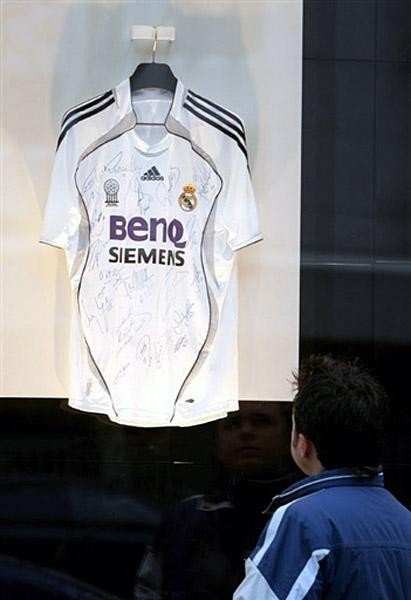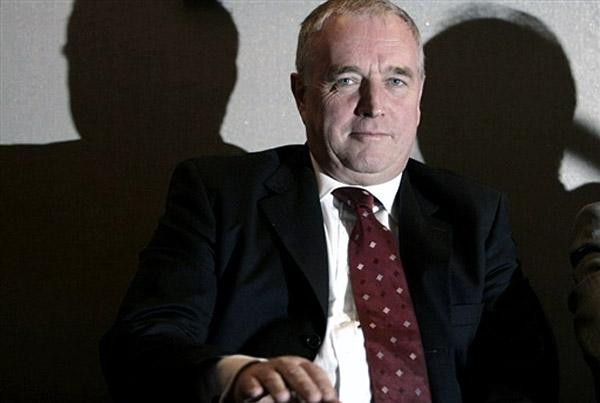Spanish soccer clubs linked to Fuentes?
By Hedwig Kröner and Shane Stokes The latest of the Spanish doping investigation called Operación...


By Hedwig Kröner and Shane Stokes
The latest of the Spanish doping investigation called Operación Puerto seems to have spread beyond the world of cycling into another, globally even more popular sport: soccer. French national newspaper Le Monde claims to have in its possession several documents revealing the involvement of Spanish doctor Eufemiano Fuentes in the training schedules of the two greatest soccer clubs in Spain, FC Barcelona and Real Madrid.
The confidential, but non-nominative documents are reported to be seasonal preparation plans for the two clubs, hand-written by Fuentes himself. The newspaper claims that the papers, which also concern the FC Valencia and Sevilla, are not part of the documents seized by the Guardia Civil. If the reports are proven to be true and it emerges that high-profile footballers have been receiving illegal treatments, it will mean that the Operación Puerto enquiry will be much more far-reaching and have even more serious consequences than was anticipated.
On these sketches appear the objectives of the FC Barcelona in the season 2005-2006 (the Champions League, won by the team in may 2006), as well as notes regarding individual players, targeting the World Cup. Arrows, pointing either up or down, allegedly marked intensive competition periods or physical tests.
Codes such as small circles or the letters "IG", apparently the same ones as found on Fuentes' training programme documents attributed by the investigators to the former Liberty Seguros team, would then mark preparation or recuperation phases. According to the investigation report of the Guardia Civil, these codes would correspond to the administering of steroids and IGF-1 (Insulin Growth Factor).
Furthermore, the soccer training plans include codes such as an encircled "e", which would correspond to blood extraction or re-injection, and a dot inside a circle, signifying the intake of EPO - all allegations made by Le Monde.
When the Operación Puerto scandal broke, in may 2006, initial reports suggested that Eufemiano Fuentes did not only include cyclists on his list of clients, but also soccer players and athletes. The Spanish government denied that other sports were involved, but Fuentes himself contradicted this claim in July.
Get The Leadout Newsletter
The latest race content, interviews, features, reviews and expert buying guides, direct to your inbox!
In an interview with Cyclingnews, Spanish ex-professional Jesús Manzano insisted that some athletes and soccer players were also involved with Fuentes, but since then, no more news of the other sports' implication filtered from the investigation.
Cycling has received the vast majority of the negative publicity from the Operación Puerto affair, with several big names being sidelined from the Tour de France and other events. UCI president Pat McQuaid responded to the reports, saying "It doesn’t surprise me. I have said all along that with the sophisticated methods which Fuentes had developed, it was certain that he wasn’t making his money only from cyclists. There had to be other sportspersons involved."
Speaking from the Asian Games in Qatar, McQuaid declined to compare the treatment cycling has received with that of football. "I do not wish to discuss any other sport, my concern is cycling and getting to the end of this process for the sake of cycling’s reputation. If we can begin the process against the those riders implicated and ultimately need to sanction some of them, then cycling will benefit."
McQuaid stressed that, since the 1998 Tour de France scandals, the sport has made concerted efforts to deal with doping issues, and that cycling is ahead of other sports in this regard. "The UCI have always maintained that cycling goes further than all other sports in the fight against doping. This continues to be the case and currently there is a lot of work going by the teams and the UCI, both independently and together to come up with new methods in the fight against doping. Yet again, cycling will be the pioneer in the fight against doping." In comparison, at the Football World Cup in Germany this summer, all 228 anti-doping controls came back negative, but the world-governing body of the sport, FIFA, did not carry out a single blood control
The days and weeks ahead will show how accurate Thursday’s reports of doping in football are. McQuaid was hesitant to draw any conclusions about the effect the Le Monde reports will have, or if he felt that cycling has undeservedly taken the lion's share of the burden, saying "This, so far, is only a newspaper report and so can only be treated as such," he responded. "I would have to await further information before I could speculate as to if and why cycling might have been treated unfairly."